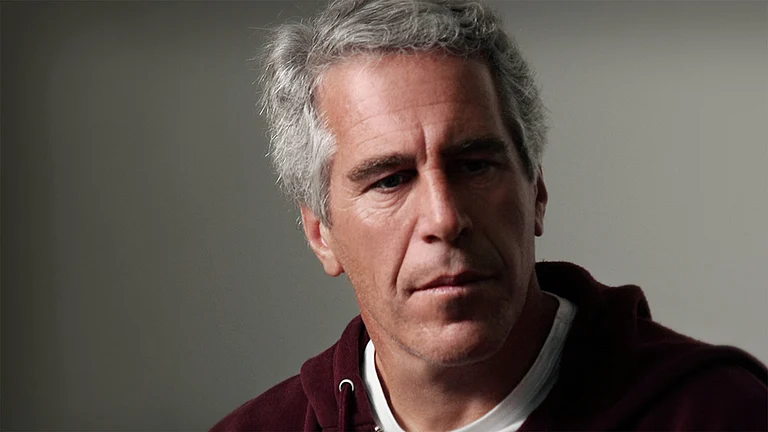IT began as a small upstart among film festivals but has gone on to become a gala event in the 20odd years of its existence. The Toronto International Film Festival, marking its 23rd anniversary this year, once again showcased some of the best and disparate cinematic talent from 53 countries, from Canada to Kazakhstan, from Mongolia to Montenegro, with a special focus on Japan. On display were 311 films, including 144 world and North American feature premieres. In addition to the returning veterans, the festival also exhibited 83 first features.
Satyajit Ray classic Charulata was screened with a special introduction by the Oscar-winning director James Ivory. Besides, India was represented through its four entries, a definite improvement on last year when only Mani Ratnam's Iruvar was screened. Deepa Mehta's Earth in Hindi, Santosh Sivan's Tamil film The Terrorist and Kaizad Gustad's English comedy Bombay Boys enthralled Toronto's cinematically literate audience. India's fourth entry, Cheran's Tamil film Porkkalam, got cancelled at the last moment, because of the unavailability of prints.
However, it was the premiere of Shekhar Kapur's controversial $30 million English film Elizabeth that the audiences were eagerly awaiting. And they greeted him with a standing ovation at the end of the screening at the glamorous Roy Thomson Hall. Canadian daily The Globe and Mail described the film as a "visually exquisite and emotionally potent portrait of the great Tudor monarch and her extraordinary age" and called Kapur's interpretation "sublime".
A piece of adulation that for Kapur has come after much controversy, inevitable because the film involved a British monarch. But explaining himself, Kapur says: "There are basically two icons in British history—Winston Churchill and Elizabeth I. The British press castigated me for showing Elizabeth as a non-virgin. My response was that a woman who had so many lovers couldn't possibly have been a virgin. But yes, she tried to replace the icon of the Virgin Mary. She was single and the Monarch; she had to keep men in control and that's the way she did it. For Elizabeth, virginity was more a political statement than a physical fact." That explanation probably appeased the press, for the protest died down and a later exit poll showed the response to be overwhelming 'Good'.
Another 'Indian' film that impressed was Paul Stevens' cinematic adaptation of Rohi-nton Mistry's novel Such a Long Journey, directed by Canadian Sturla Gunnarsson. The film's cast—comprising Roshan Seth, Naseeruddin Shah, Om Puri, Soni Razdan, Pearl Padamsee and Ranjit Chaudhury—was lauded by The Toronto Star for "understated and natural" performances. Gunnarsson himself, in an exclusive interview to Outlook, also heaped praise on the cast. "They're as good as any world class actor," he said. "It's a pity an actress with Soni's talent has to contend with the kind of stereotypical roles she has been doing in India." The good news: the producer-director team will be returning to Bollywood to make another film. "That will also be written by an Indo-Canadian," says Gunn-arsson. It will probably be co-produced by Mumbai-based UTV, with whose credentials the Canadian team is very impressed.
The applause these films garnered at Toronto made the absence of spotlight on one of the world's most prolific film industry even more poignant. There was a time when over 25 Indian films were exhibited at Toronto. But that was the year when the focus was on Indian films. Since then the representation has been generally very poor. The reason, according to David Overbey, programmer at the festival, is the negative attitude of Indian government officials. A powerful bureaucrat refused them entry into the country simply because he wasn't offered a free ticket to one of the festivals. "Now we offer tickets only to participants," he told Outlook. "Because of his anger, we've been forced to choose from the videotapes of films sent to us by friends in India. They're hardly representative of the vast body of work there." Overbey, in particular, missed Mani Ratnam who if he "had been ready with his new movie, it would've been another feather in the Indian contingent's cap".
For the moment, Overbey prefers to concentrate his choices on Indian films that tread a middle path. Not Bombay potboilers because of their inane plots and melodramatic performances nor the so-called 'parallel' cinema because it's "boring". Sure they show reality, but it becomes repetitive if you show poverty 999 times, he adds. So it's the new young film-makers, who provide entertainment with a powerful storyline, along with technical superiority, that Overbey hopes to encourage. "You'd be surprised how much your song-and-dance sequences are enjoyed here, but they must be consistent with the story," he comments. That should be encouragement enough for all the Bombay boys.


























